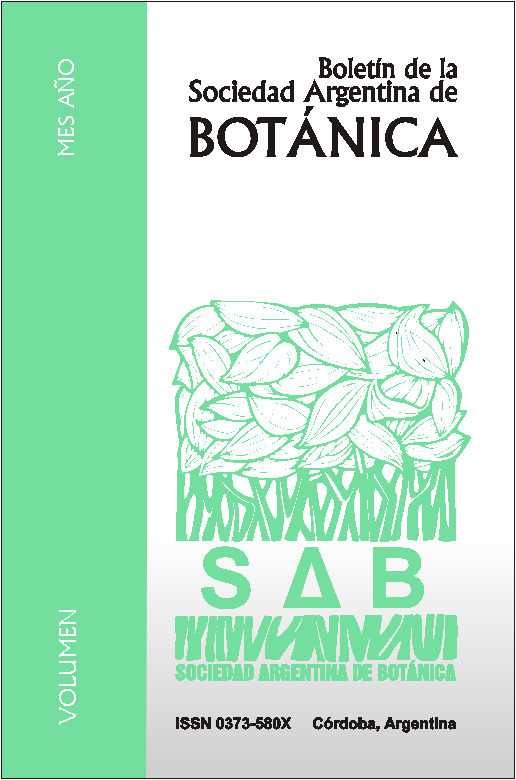Diversity of naturalized species of the genus Opuntia (Cactaceae) used by the people of Northern Córdoba (Argentina)
DOI:
https://doi.org/10.31055/1851.2372.v52.n1.16919Keywords:
Ethnobotany, cactaceae, cultivation and domestication of plants. of these plants were recorded.Abstract
Diversity of naturalized species of the genus Opuntia (Cactaceae) used by the people of Northern Córdoba (Argentina). Agriculture understood as cultivation and domestication of plants constitute a practice orientated by botanical knowledge of different cultures. The study of plant diversity, cultivated
and domesticated by a community is useful for understanding the underlying interests around them. In Argentina, particularly in Córdoba, there are few ethnobotanical research works about the relationship established between human groups and Cactaceae. That is why, in this study, an ethnobotanical research
was conducted white creole inhabitants in the north of Córdoba. Methodology consisted of open and semistructured interviews, field exploration and herbarium material collection. We identified seven different kinds of “tunas”, which have been collected from natural ecosystem and currently undergo domestication
process. Six of them belong to the botanical species Opuntia ficus-indica (4 to form ficus-indica: “Amarilla”, “Cordobesa”, “Italiana” and “Salteña”; and 2 to form amyclaea: “Colorada” and “Blanca”), and the seventh belongs to the botanical species Opuntia robusta (“Cuaresma”). Plant uses declared during the interviews were recorded, being this the first record of O. robusta usage in Córdoba province.
Downloads
Published
Issue
Section
License
Provides immediate and free OPEN ACCESS to its content under the principle of making research freely available to the public, which fosters a greater exchange of global knowledge, allowing authors to maintain their copyright without restrictions.
Material published in Bol. Soc. Argent. Bot. is distributed under a Creative Commons Attribution-NonCommercial-ShareAlike 4.0 International license.





